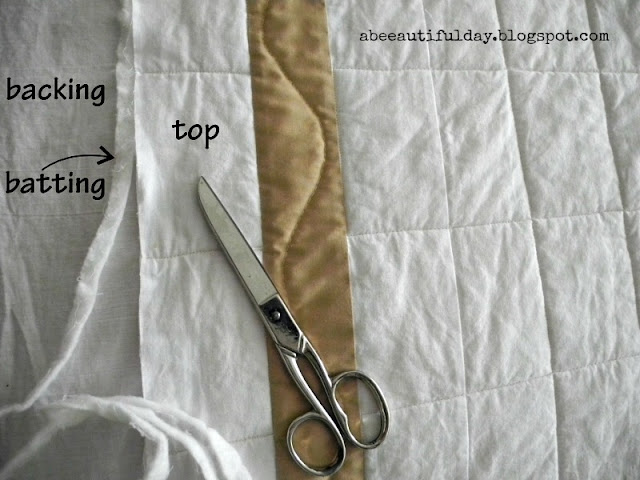Drawing using the mouse on a daily basis is difficult for the wrist and time consuming. I know it from my own experience because I'm doing this for years.
Recently I went to the next level: using a graphic tablet. For now, my brain still believes it is a mouse pad and I tend not to go near the edges with the pencil, but it is so fun to see my doodle on the screen, that I'm sure I'll get used to it.
Because I don't need it all the time, I have to protect it from dust and scratches when standing aside. And so comes the reason to create a new sewing pattern.
All-In-One Tablet Case
I have not found in my closet fabrics to match it, so I quickly painted a piece of cloth. While it was drying, I had drawn and digitized a cat face. Don't ask me why a cat, it just came to me as I was drawing.
I embroidered...
...and quilted the front panel...
...I quilted the back panel and added my little label.
 |
| I even quilted a little ball of string for the cat. Do you see it? It's above the label. |
"All-in-one" means that the case keeps inside not only the tablet but also the needed accessories, in this tricky zippered pocket.
And this is my All-In-One quilted and embroidered Tablet Case.
I hope you like it as much as I do.
Have a beautiful day, my dears!























